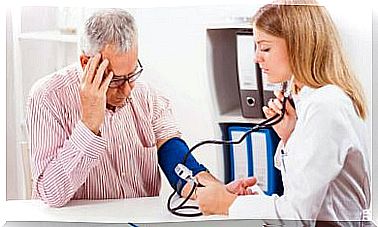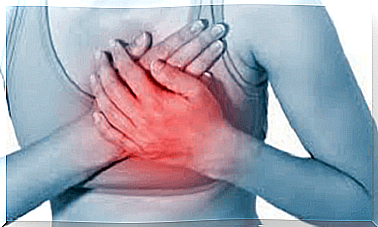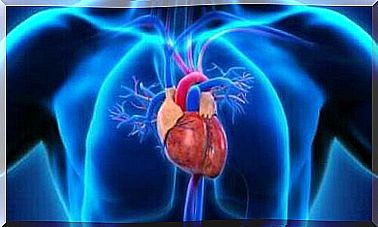Symptoms Of Mental Disorders In Children
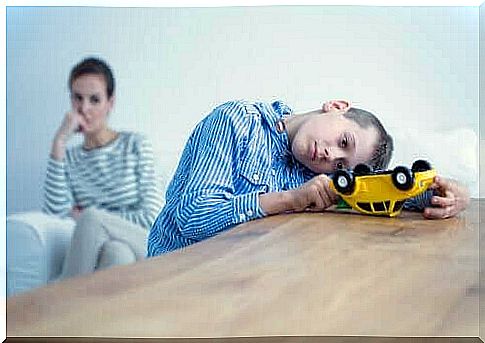
Mental disorders and other conditions affect not only adults but also children. In fact, they even occur in many animal species. However, the symptoms may present differently in children. Are you able to recognize mental disorders in your child?
Today we have gathered some information that will help you learn more about the topic of childhood mental disorders. Read it so that you have an idea of how to recognize the symptoms if they are present in your child.
What should you know about mental disorders in children?
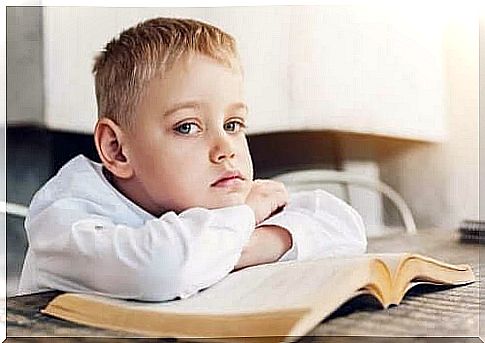
While detecting mental health problems in adults is often not difficult, we cannot say the same about diagnosing children. Children often have certain symptoms that may go unnoticed by the adults they often see. Unfortunately, precious time is often lost before treatment begins.
Also keep in mind that children are still building their vocabulary. Therefore, their ability to express what they feel is still limited.
So the adults in charge need to know enough about how mental disorders manifest in children so that they can recognize them and start treating the child as soon as possible.
Below we tell you in detail what the most common mental disorders in children are, as well as what their general symptoms are.
The most common mental disorders in children
Children can have the same mental illnesses as adults. However, certain conditions are more common in children. For example:
- anxiety disorders such as obsessive-compulsive disorder, social phobia, generalized anxiety disorder, or selective mutism, among others
- ADHD and hyperactivity
- autism
- eating disorders, such as bulimia or anorexia
- mood disorders such as depression and bipolar disorder
- schizophrenia, which usually manifests itself towards the end of adolescence
The Symptoms of Mental Disorders in Children
As we explained above, mental disorders in children often go unnoticed by the parents. You may think that the first symptoms are normal and that they are just part of normal childhood behavior. If so, then you don’t see them as a sign that something isn’t right.
If a particular symptom is present for a long period of time or becomes progressively more intense, it is best to seek advice from a therapist. It could be an indication that your child needs a little extra help.
Parents often lack appropriate information to recognize symptoms of mental disorders in their children. Therefore, they may not seek help. Unfortunately, most of us are affected by the negativity and stigmatization of mental disorders in our society.
The first step is to leave behind all the taboos and prejudices you have about mental disorders. That way you can have confidence in the help you get and help end the (unnecessary) social stigma, at least at home. So what symptoms should you be looking for?
1. Behavioral Changes
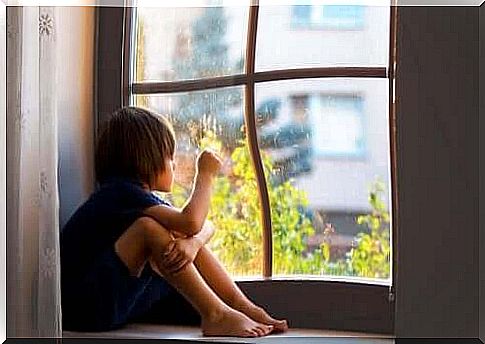
Watch out for drastic and radical changes in your child’s behavior. For example, they may become irritable and violent or dangerous and aggressive. They may also constantly make threats or argue.
What you’re looking for here are displays of unusual and disproportionate irritability and aggressiveness. This may indicate the existence of some mental disorder.
Also, consider any notable changes in your child’s behavior as a warning sign of mental illness, especially if they are long-lasting or intense.
2. Moody
When we say, “Look for the symptoms,” we mean we need to watch out for major changes that affect a child’s daily life.
For example, pay close attention if a feeling of sadness lasts more than 15 days or if the child is generally isolated and withdrawn. (However, keep in mind that some children are more introverted than others).
Also notice if any new behaviors have emerged that are preventing them from doing activities they used to enjoy or that are affecting their school performance. If so, it may be that a psychological disorder has developed, such as depression in children.
3. Concentration Problems
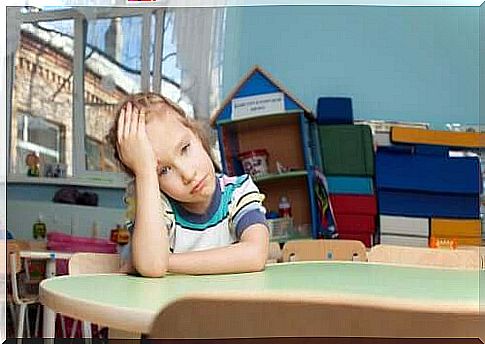
It is normal for children to have difficulty concentrating, especially if they have to sit in a boring classroom for a long time. However, if this problem is disproportionate to that of other children or if it affects their daily lives and school performance, or at least two areas of their lives, it could be a symptom of a mental disorder.
Pay particular attention to other possible symptoms such as memory loss or other changes in cognitive ability, such as difficulty thinking clearly.
4. Excessive Weight Loss
Watch out for:
- excessive weight loss
- vomit
- loss of appetite
This could indicate an eating disorder. It is important to be alert and seek help in these cases so that treatment can begin as soon as possible. Anorexia and bulimia have serious negative consequences if left untreated.
5. Mental health problems in children can lead to self-mutilation
In many cases, a mental disorder can lead to self-mutilation in a child. You should therefore also pay attention to possible injuries on the body of a child, because they may have been inflicted by the child himself.
You should seek immediate help if you notice this symptom. Many children with a mental disorder also have suicidal thoughts, so the sooner you detect it, the sooner they can begin treatment.
Be aware of any noticeable changes in your children’s behavior. Know that self-mutilation, suicidal thoughts, and difficulty concentrating are signs that you should see a therapist for support.
6. Intense Feelings
It is normal for children and young people to experience their feelings quite intensely. However, if there is no particular reason for it, for example if your child has an excessive, powerful, irrational fear of something, then the phobia may be a symptom of a mental disorder.
Here we refer to phobias or fears that negatively affect their daily activities. In these cases, the intensity of the fear is unusual.
7. Headaches and Stomachaches
Adults can often express symptoms such as fear or sadness, children can express a mental disorder in other ways. For example, unusual or constant headaches or abdominal pain can be a symptom of anxiety or worry.
You should also be aware of possible sleep disorders for which there is no clear explanation. In any case, your first step should be to rule out any physical problems that could be causing pain or difficulty sleeping.
8. Drug or Alcohol Abuse
This is especially important during adolescence. A child suffering from a mental disorder is often addicted to substances such as alcohol or drugs as a way of avoiding their painful reality. Therefore, you should be aware of any signs of drug use in the child.
9. Perceptual Changes
The child may show that he sees or hears people or things that are not really there. Be careful with this though, as a child’s imagination is limitless. However, if this symptom persists well into adolescence or if it affects their quality of life, seek help.
10. Problems With Socialization
Many children are shy, and that is normal. However, very unusual isolation may be due to a mental disorder that prevents them from coping with their environment.
Also note whether their difficulty getting along with others is excessive and whether they avoid any contact with other children or other people. This could be a sign of an anxiety disorder or social phobia.
What should you do if you discover a mental disorder in your child?
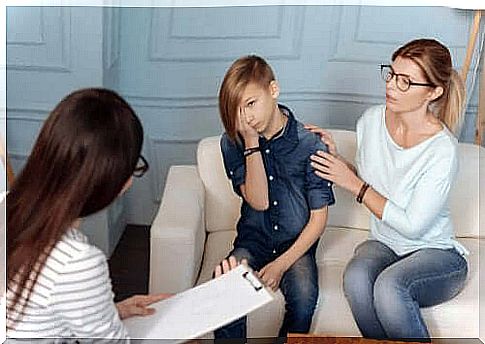
Psychological help is key to coping with mental disorders that affect children. So it is essential to seek help after recognizing certain symptoms.
It is important to identify some of these symptoms, as well as their intensity and duration. It is also very important to seek help. It is best to talk to a doctor and discuss your concerns with him.
You should also talk to the child’s teacher, who may be able to tell you whether the symptoms also occur in the classroom or whether they show different symptoms there.
If so, the child can begin effective psychological treatment depending on the condition. Of course , children should always have the unconditional support and love of their family. That way they know they are not alone, that their problem has a solution and that you are always there to support them fully.


